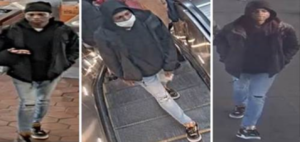International Week Events at Catholic University
by Sarah Donofrio
The Hispanic Film Festival, sponsored by the Department of Modern Languages and Literature, showed its first films on Wednesday, February 15th as part of the university’s International Week. The theme of the Hispanic Film Festival is “Transient Identities,” and discusses the migration, circulation, and displacement of people.
The event began with a brief presentation by guest speaker Armando Trull. Trull is the Reporter for Race and Ethnicity at WAMU, American University’s radio station. In his presentation, Trull discussed his work that covers the Hispanic/Latino and immigrant communities in Washington, D.C.
The guest speaker shared a story related to the identity of Guatemalan indigenous people and discussed the process of identifying deceased bodies.
“The [films] are fictionalized, perhaps romanticized versions of the truth. But in this community, you don’t need to go to the movies to learn about Guatemalans,” said Trull. “If you take the chance and have a conversation with a person from Guatemala, they will tell you things that you will find more fascinating than anything you will see in a movie. All those communities are here and they will tell you what it’s like to live in those countries.”
Trull shared an article he wrote in February 2015: “How Forensic Analysis May Bring Closure to Guatemalan Families,” which discussed the process of identifying the bodies of relatives of Guatemalan families in the Washington, D.C. area.
“You don’t need me to talk about these realities. You can find them in this community if you just open your eyes and look beyond your comfort zone,” said Trull.
The first film shown was entitled Who Was Dayani Cristal? The documentary featured the dramatized journey of a migrant from Mexico to Arizona, and the process through which authorities identified his deceased body.
“The film was really interesting. I was unaware of the travel from Mexico into the U.S,” said freshman accounting major Robert Rossetto. “I knew about the struggle and dangers of the journey, but it was interesting to see a first-hand account. I did not know about the whole process of identifying the deceased bodies.”
Although some students arrived with previous knowledge, the film offered a new per-spective.
“I did not know a lot about border crossing or the stories of the people coming into the United States,” said freshman politics major Jake Bodenger. “It gave me a lot of perspective on why people from Mexico come to the United States, and how difficult and dangerous it is.”
The second film, Ixcanul, followed the lives of Mayans working on a coffee plantation near a volcano and dealt with issues concerning the disappearance of people.
The Hispanic Film Festival is part of the International Week, a collaborative effort by International Student and Scholar Services, the Center for Cultural Engagement, the Office of Admissions and the Center for Global Education. Other events included the Global Fest and Embassy Row, and an Intercultural Speaker Series.
“One thing to note is that the Global Fest featuring Embassy Row is the signature event of the week,” said Gudrun Kendon, Director of International Student and Scholar Services. “Although it is spearheaded by ISSS and sponsored by the Center for Global Education, it is the Office of Admissions who is responsible for the Embassy Row piece, that is they are the ones who invite the Embassy representatives to CUA. The event this year had about 23 embassy representatives and 19 tables representing CUA student associations, offices, and international students.”
International Week concluded with an International Coffeehouse and Tea Room where different modern language and culture clubs sponsored tables for students to learn how different countries incorporate tea and coffee into their cultures.







